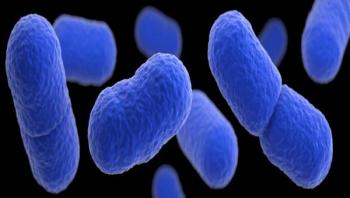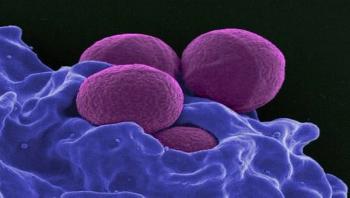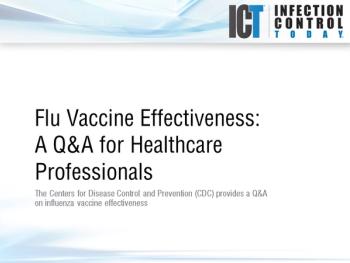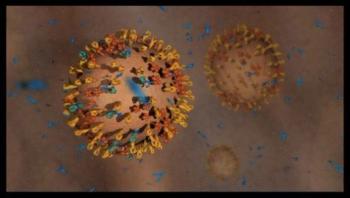
Researchers from Monash University in Australia and Cardiff University in the UK have come a step further in understanding how the human immunodeficiency virus (HIV) evades the immune system.

Researchers from Monash University in Australia and Cardiff University in the UK have come a step further in understanding how the human immunodeficiency virus (HIV) evades the immune system.



Listeria, a common food-borne bacterium, may pose a greater risk of miscarriage in the early stages of pregnancy than appreciated, according to researchers at the University of Wisconsin-Madison School of Veterinary Medicine studying how pathogens affect fetal development and change the outcome of pregnancy.



Seal Shield LLC brings its health IT solution for mobile device management and disinfection, the ElectroClave™, to the exhibit floor for the 2017 HIMSS Conference and Exhibition in Orlando, Fla. Feb. 20-23, 2017 at Booth #4444.

Mobile devices are ubiquitous in society and their infiltration of the healthcare environment poses new challenges for infection prevention and control. Numerous studies have documented that mobile handheld devices are frequently contaminated with healthcare-associated pathogens, but they are seldom cleaned and disinfected due to individuals being unsure of what kind of products and methods to use to decontaminate their electronics.


A study reported Feb. 17 in the journal Science led by researchers at Indiana University and Harvard University is the first to reveal in extreme detail the operation of the biochemical clockwork that drives cellular division in bacteria. The discovery, made possible through a revolutionary method used to color bacterial cell walls developed at IU, is an important step forward in research on bacterial growth and could inform efforts to develop drugs that combat antibiotic-resistant bacteria.

Methicillin-resistant Staphylococcus aureus (MRSA) is a bacterial scourge. As its name suggests, MRSA is resistant to most common antibiotics and thus difficult to treat, particularly in children where it commonly causes complicated skin and skin structure infections. In a randomized, controlled clinical trial -- the first of its kind -- a multi-institution research team reports that daptomycin, part of a new class of antibiotics currently approved only for use in adults, is effective and well-tolerated in children. The findings are published in the March 2017 issue of Pediatrics.


The human gut is home to some 100 trillion bacteria, comprising between 250 and 500 species. This astounding array of organisms, collectively known as the gut microbiome, is a powerful regulator of disease and health and has been implicated in conditions ranging from inflammatory bowel disease to multiple sclerosis. Gut microbes engage in an intricately choreographed conversation with the immune system, stimulating it just enough to keep disease-causing invaders at bay, while at the same time reining it in so it doesn’t mistakenly launch an attack on the body. So far, scientists have been able to listen to bits and pieces of the conversation between bacteria and individual immune cells or a handful of genes. Now, for the first time, scientists from Harvard Medical School have managed to “listen in” on the crosstalk between individual microbes and the entire cast of immune cells and genes expressed in the gut.

Little teapots with long spouts have become a fixture in many homes to flush out clogged nasal passages and help people breathe easier. Along with other nasal irrigation systems, these devices - commonly called neti pots - use a saline, or saltwater, solution to treat congested sinuses, colds and allergies. They’re also used to moisten nasal passages exposed to dry indoor air. According to the Food and Drug Administration (FDA), improper use of these neti pots and other nasal rinsing devices can increase your risk of infection.










The research carried out by professor Jose Bengoechea, director at the Centre for Experimental Medicine at Queen's University, and his team unveiled the molecular mechanisms preventing the treatment of Klebsiella pneumonia. The multidrug-resistant microbe can cause bladder infections, pneumonia and has mortality rates of 25 percent to 60 percent.



An investigational malaria vaccine given intravenously was well-tolerated and protected a significant proportion of healthy adults against infection with Plasmodium falciparum malaria--the deadliest form of the disease--for the duration of the malaria season, according to new findings published in the February 15 issue of the journal Lancet Infectious Diseases. The study participants live in Mali, Africa, where they are naturally exposed to the parasite.



In an effort to one day eliminate the need for an annual flu shot, a group of researchers from the National Institutes of Health (NIH) and Icahn School of Medicine at Mount Sinai are exploring the surface of influenza viruses, which are covered by a protein called “hemagglutinin” (HA). This particular protein is used like a key by viruses to open cells and infect them, making it an ideal target for efforts to help the body's immune system fight off a wide range of influenza strains.